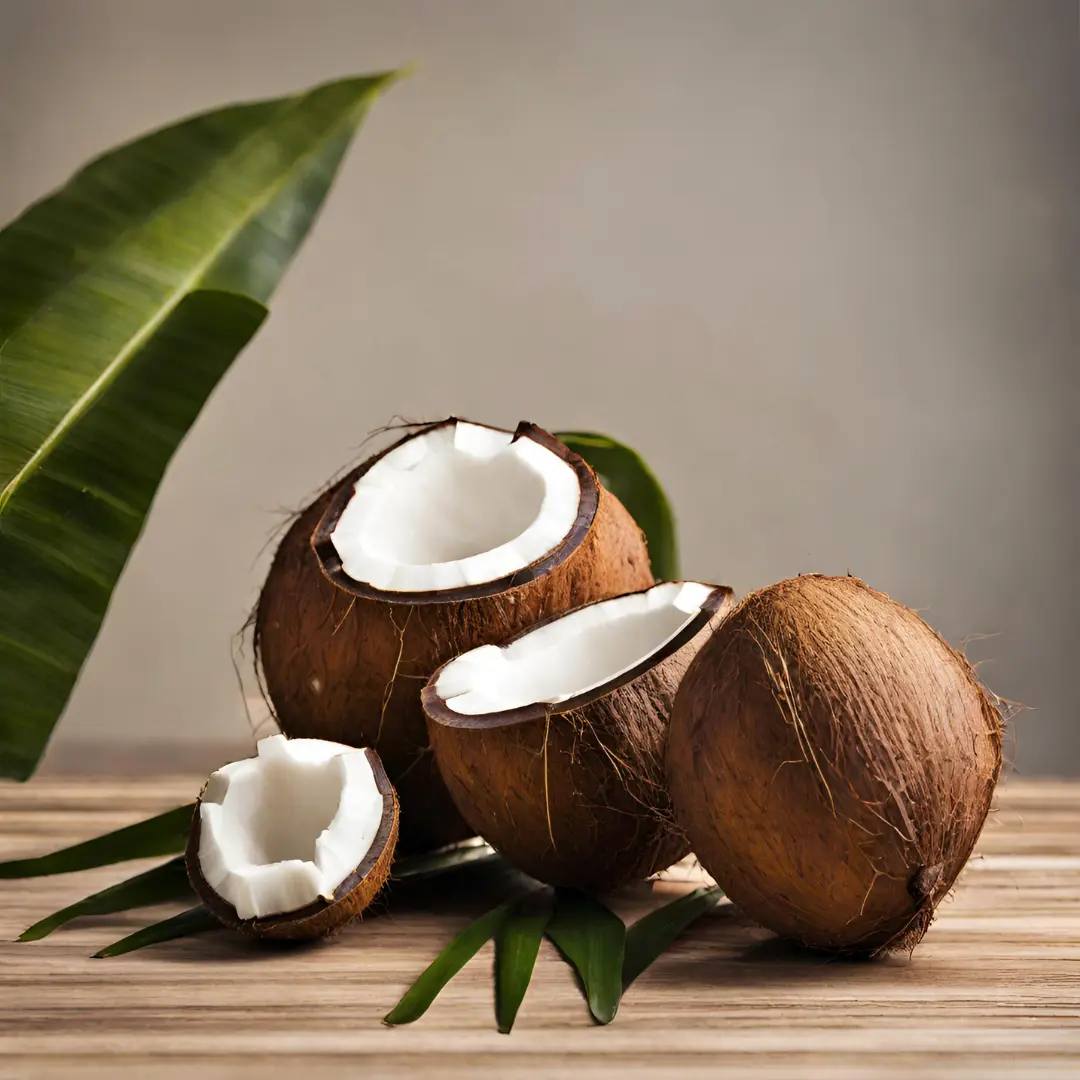Indian Coconuts: Achieving Harmony on the Global Stage

“Coconut is not just a fruit; it is a symbol of harmony, prosperity, and versatility. With its numerous byproducts and rich export potential, Indian coconuts have become a prominent player on the global stage.” – Thangamman Exports
Coconut, the “tree of life,” has been an integral part of Indian culture for centuries. From its delicious flesh and refreshing water to the numerous byproducts it yields, coconuts hold immense value, both culturally and economically. In recent years, Indian coconuts and their byproducts have gained significant attention on the global stage. With its commitment to sustainability, quality, and diverse offerings, India has become a leading exporter of coconuts worldwide.
A Pillar of Indian Agriculture
India’s tropical climate provides the perfect environment for coconut cultivation. The country’s expansive coastline, abundant sunshine, and fertile soil make it a prime location for coconut plantations. The southern states of Tamil Nadu, Kerala, and Karnataka are the major contributors to India’s coconut production, with Tamil Nadu being the largest coconut producer in the country.
Coconut cultivation plays a vital role in the Indian agricultural sector, providing livelihoods to millions of farmers and laborers. It serves as a significant source of income, contributing to the economic development of rural communities. Moreover, coconut cultivation is often intercropped with other crops, promoting sustainable farming practices and enhancing biodiversity.
Versatility in Every Nut

Indian coconuts offer versatility like no other. From its refreshing water to the various byproducts derived from its flesh, coconuts serve a multitude of purposes.
1. Coconut Water
Coconut water has gained immense popularity globally due to its hydrating properties and numerous health benefits. Low in calories and rich in electrolytes, it serves as a natural, tropical alternative to sugary drinks. Indian coconuts, known for their sweet and refreshing water, are highly sought after in the international market.
2. Coconut Oil
Coconut oil, extracted from the coconut flesh, is widely used for culinary, cosmetic, and medicinal purposes. Indian coconut oil is renowned for its superior quality and purity, making it a preferred choice for consumers worldwide. Its natural antioxidants and moisturizing properties have made it a valuable ingredient in the beauty and wellness industry.
3. Desiccated Coconut
Desiccated coconut, made by drying the coconut flesh, is a common ingredient in various cuisines and confectioneries. Indian desiccated coconut is cherished for its rich flavor, texture, and long shelf life. It adds a distinct taste and aroma to dishes, making it a favorite among chefs and home cooks alike.
4. Coconut Milk and Cream
Coconut milk and cream are essential ingredients in many Indian and Southeast Asian dishes. They provide a creamy texture and a delicate, nutty flavor to curries, soups, and desserts. Indian coconut milk is known for its purity and authenticity, enhancing the taste of culinary creations worldwide.
5. Coir and Fiber Products
Coconut husk, known as coir, is processed to produce durable fibers used in various industries. Coir ropes, mats, brushes, and even mattresses are derived from this natural and eco-friendly material. Indian coir products are renowned for their strength and quality, meeting the demands of a global market seeking sustainable alternatives.
Exporting Coconuts from India

India’s robust agricultural infrastructure, stringent quality control standards, and commitment to sustainability have propelled it as a major player in the global coconut export market. Indian coconuts are in high demand in countries like the United States, Europe, the Middle East, and even Australia.
The Government of India, through organizations like the Agricultural and Processed Food Products Export Development Authority (APEDA), provides support and assistance to coconut exporters. Stringent quality checks, certifications, and adherence to international standards ensure that Indian coconuts reach their destination with optimal freshness and quality.
Embracing Sustainability
Sustainability is at the heart of India’s coconut industry. Coconut plantations often promote organic farming practices, minimizing the use of chemical fertilizers and pesticides. Additionally, coconut trees contribute to carbon sequestration, making them environmentally friendly.
Many Indian coconut exporters prioritize fair trade practices and work directly with farmers, ensuring fair wages and ethical working conditions. By supporting Indian coconut exports, consumers contribute to the growth and prosperity of rural farming communities.
India aims to further enhance its coconut export potential by exploring new markets and developing innovative coconut-based products. With continuous research and advancements in technology, Indian coconuts are set to achieve even greater heights on the global stage.
Conclusion
Indian coconuts symbolize harmony, prosperity, and sustainability. Their versatile nature and multitude of byproducts have captured the attention of the global market. The commitment of Indian farmers, exporters, and the government towards quality and sustainability has made Indian coconuts highly sought after worldwide. By embracing the goodness of Indian coconuts, consumers around the world not only experience their rich flavors but also contribute to the growth and well-being of rural communities. So, next time you enjoy a coconut-based product, remember the harmony it brings from the tropical shores of India to you.
References:
– Agricultural and Processed Food Products Export Development Authority (APEDA)
– Coconuts in Indian culture
– Benefits of coconut water
– Coconut oil for skincare
– How to use desiccated coconut
– Indian coconut milk recipes
– Coir products for sustainable living
Disclaimer: The images used in this article are for illustrative purposes only. The depicted coconuts may not represent the exact variety or origin mentioned.




